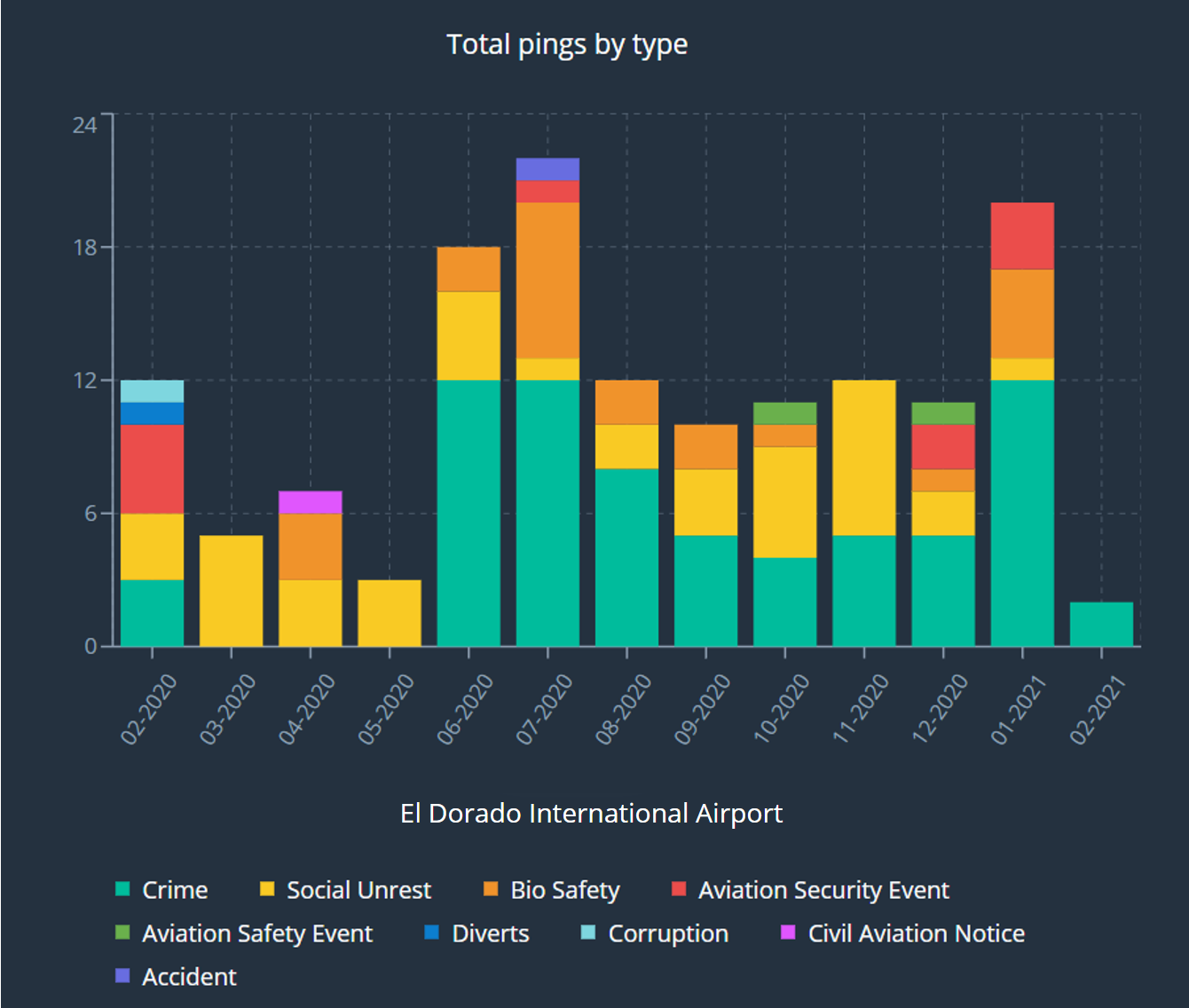Background
Colombia is the world’s largest manufacturer and exporter of cocaine and is also regarded as a major producer of other narcotics, such as heroin, marijuana and other, synthesised drugs. The export of these substances, primarily to Europe and North America, occurs via a number of methods, including air transport, either by cargo or using passengers, known as ‘mules’, who typically conceal the contraband in small quantities on their person, in their luggage, inside body cavities or by swallowing to avoid detection by customs and security officials. However, on 23 March 2020, in response to the COVID-19 pandemic, the Colombian government introduced a ban on both domestic and international commercial passenger flights, significantly reducing the opportunities for traffickers to export drugs via the use of mules. In addition to aviation restrictions, land, sea and river borders were closed on 17 March. Also, in April the US military launched a large-scale operation in the eastern Pacific Ocean and Caribbean Sea to counter narcotics trafficking to the United States via cargo ship.
Data Analytics
Narcotics trafficking accounts for the majority of crime (represented in turquoise in the Osprey:Explore chart shown below) reported at Bogotá’s El Dorado International Airport. Activity markedly decreased in March-May but a significant spike was detected in June-August.

Osprey Flight Solutions identified that narcotics traffickers altered their behaviour as they attempted to achieve continuity of supply despite the COVID-19-related ban on commercial aviation and border closures in Colombia, as well as the US military counter-narcotics operations at sea. In the first two months of restrictions on aviation, there was a significant decrease in trafficking by air followed by a sudden increase in activity in June as drug traffickers began to heavily exploit air cargo — especially via shipments containing COVID-19 medical supplies and food — and repatriation flights, which were not impacted by restrictions. Highlighting this, border force police reported that from the point that El Dorado International Airport closed to passengers at the end of March until the end of June, a total of 440kg of narcotics had been seized at the facility.
In the second half of 2020, Colombia adopted a staggered approach to reopening commercial aviation, with the first domestic passenger flights resuming at regional airports on 21 July. El Dorado Airport did not open until 1 September and international flights have been steadily resuming from 19 September. However, international travel restrictions, particularly those relating to the COVID-19 variant identified in the Brazilian Amazon, have continued to significantly impact flight and passenger numbers in Colombia. Despite this, in January alone police seized more than 500kg of narcotics at El Dorado International Airport and continued to report increased trafficking activity at the airport’s national and international postal warehouses and cargo depots.
Looking Forward
With the further lifting of international restrictions on movement in the future, including the resumption of international flights to and from Colombia, Osprey Flight Solutions continues to highlight that attempts to smuggle narcotics via passengers are likely to increase. In addition, the economic impacts of the pandemic — namely loss of income — may play a role in individuals’ decisions to engage in narcotics smuggling, potentially encouraging more people to engage in this activity than prior to the pandemic. Significantly, given the impact of COVID-19 on aviation, employees of airlines, airports and ground handling companies may be particularly vulnerable, thus increasing the industry’s exposure to the insider threat.








